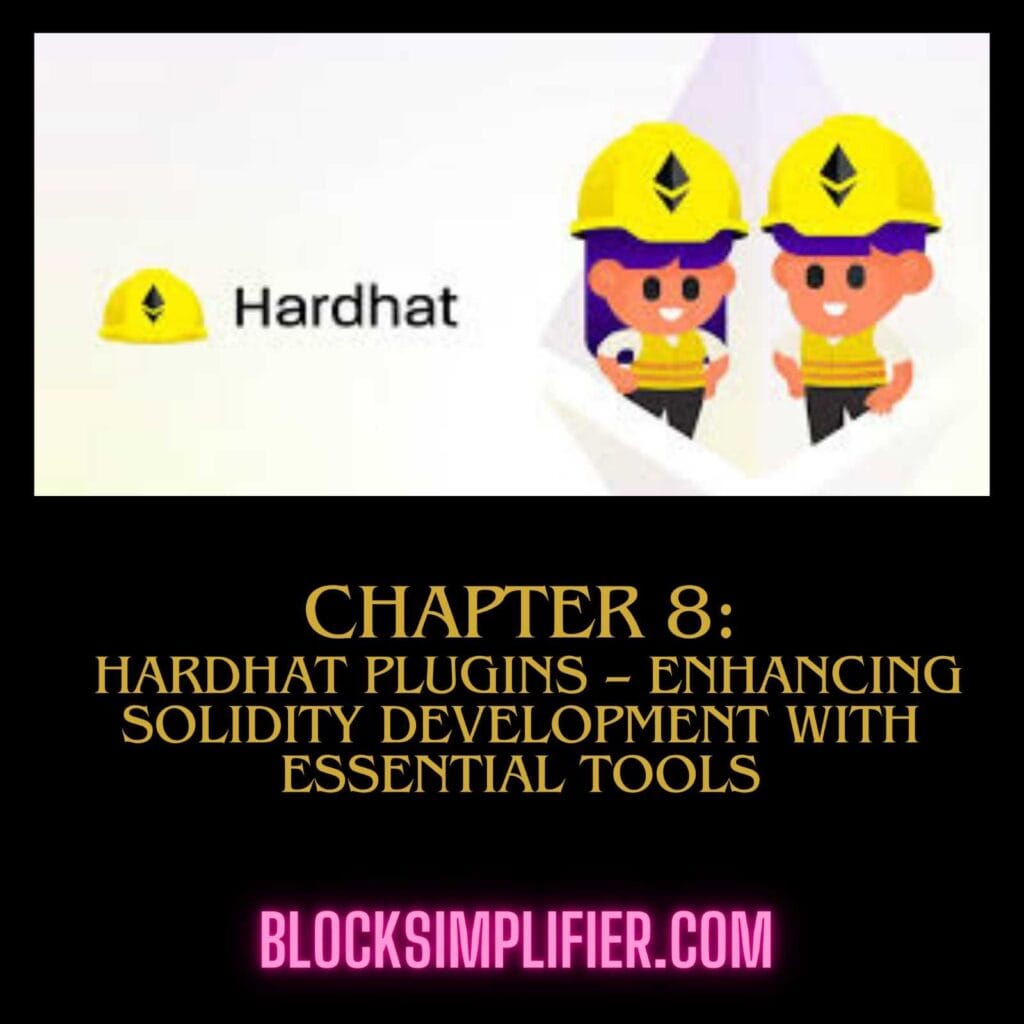This blog is a complete manual to Hardhat Plugins and the way they decorate Solidity improvement. Let’s break it down section via a segment for a deeper information.
Table of Contents
1. Introduction
The advent highlights the importance of efficiency, debugging, and protection in smart contract improvement. Since Hardhat is a broadly used Ethereum development device, it provides a plugin gadget that extends its functionality.
It introduces four essential plugins:
- Hardhat-Waffle – A powerful testing framework
- Hardhat-Ethers – A plugin for contract deployment and interaction
- Hardhat-Gas-Reporter – Helps in gas optimization
- Hardhat-Etherscan – Simplifies smart contract verification
This phase makes it clean that by way of the cease of the bankruptcy, builders could have a solid information of those plugins and how to combine them into their workflow.
Key Takeaway: These plugins enhance Solidity improvement by way of growing performance and debugging abilties.
2. Hardhat-Waffle: Simplifying Smart Contract Testing
What is Hardhat-Waffle?
Hardhat-Waffle is a testing framework that integrates with Mocha and Chai to simplify clever agreement trying out. It gives:
- Readable and expressive test cases
- Matchers to test contract behavior
- Support for event assertions and function calls
Why is it beneficial?
- Cleaner test cases: Instead of writing complex test logic, Hardhat-Waffle provides an easy way to define and execute tests.
- Seamless integration: Works properly with ethers.Js, Hardhat, and Mocha.
Installation and Setup
To use Hardhat-Waffle, install it with:
npm install --save-dev @nomicfoundation/hardhat-chai-matchers
Add it to hardhat.config.js:
require("@nomicfoundation/hardhat-chai-matchers");
Example: Testing a Smart Contract
This section affords an example of trying out a simple ERC-20 token contract.
const { expect } = require("chai");
describe("Token Contract", function () {
it("Should return the correct name", async function () {
const Token = await ethers.getContractFactory("MyToken");
const token = await Token.deploy();
await token.deployed();
expect(await token.name()).to.equal("MyToken");
});
});
This test checks if the contract initializes correctly.
Key Takeaway:
Hardhat-Waffle simplifies testing, reducing debugging time.
3. Hardhat-Ethers: Interacting with Smart Contracts
What is Hardhat-Ethers?
Hardhat-Ethers integrates Ethers.Js with Hardhat, allowing builders to installation and have interaction with contracts programmatically.
Why is it useful?
- Provides built-in support for deploying and interacting with contracts
- Simplifies working with signers, providers, and contract calls
- Enables gas estimation
Installation and Setup
To install Hardhat-Ethers, run:
npm install --save-dev @nomicfoundation/hardhat-ethers ethers
Add the plugin to hardhat.config.js:
require("@nomicfoundation/hardhat-ethers");
Example: Deploying a Smart Contract
const { ethers } = require("hardhat");
async function main() {
const Token = await ethers.getContractFactory("MyToken");
const token = await Token.deploy();
await token.deployed();
console.log(`Token deployed to: ${token.address}`);
}
main();
This script:
- Uses
ethers.getContractFactory("MyToken")to get the contract factory. - Deploys the contract.
- Prints the deployed contract’s address.
Key Takeaway:
Hardhat-Ethers is a powerful tool for automating contract deployment and interaction.
4. Hardhat-Gas-Reporter: Optimizing Gas Usage
What is Hardhat-Gas-Reporter?
It is a gas profiling tool that helps developers measure and optimize gas usage in smart contracts.
Why is it useful?
- Identifies gas-heavy functions
- Helps reduce deployment and transaction costs
- Supports CI/CD integration to monitor gas usage
Installation and Setup
To install Hardhat-Gas-Reporter:
npm install --save-dev hardhat-gas-reporter
Enable it in hardhat.config.js:
module.exports = {
solidity: "0.8.20",
gasReporter: {
enabled: true,
currency: "USD",
coinmarketcap: "your-api-key"
}
};
Note: If you provide a CoinMarketCap API key, you get real-time gas cost estimates.
Example: Running Gas Reports
To check gas usage:
npx hardhat test
This generates a report showing gas consumption for different functions.
Key Takeaway:
Hardhat-Gas-Reporter helps reduce costs by identifying expensive operations.
5. Hardhat-Etherscan: Verifying Smart Contracts
What is Hardhat-Etherscan?
A plugin that lets in automatic verification of smart contracts on Etherscan.
Why is it useful?
- Simplifies contract verification
- Enhances transparency and trust
- Allows auditors and investors to inspect contract code
Installation and Setup
To install Hardhat-Etherscan:
npm install --save-dev @nomicfoundation/hardhat-etherscan
Configure it in hardhat.config.js:
require("@nomicfoundation/hardhat-etherscan");
module.exports = {
etherscan: {
apiKey: "your-etherscan-api-key",
},
};
Note: Replace
"your-etherscan-api-key"with your actual Etherscan API key.
Example: Verifying a Contract
await hre.run("verify:verify", {
address: "0xYourContractAddress",
constructorArguments: [],
});
This automatically verifies your contract on Etherscan.
Key Takeaway:
Hardhat-Etherscan makes contract verification effortless, ensuring security and transparency.
6. FAQs
1. Can I use all these plugins together?
Yes! They complement each other to improve Solidity development.
2. Is Hardhat better than Truffle?
Hardhat provides better debugging, network simulation, and plugin support compared to Truffle.
3. How do I debug errors when using these plugins?
Use:
- console.log()
- Hardhat Network logs
- Stack traces
4. Can Hardhat-Gas-Reporter help reduce deployment costs?
Yes! It identifies expensive functions, allowing developers to optimize gas usage.
7. Conclusion: Why Hardhat Plugins Are Essential
This section summarizes the importance of Hardhat plugins:
- Hardhat-Waffle simplifies testing.
- Hardhat-Ethers makes contract deployment and interaction easier.
- Hardhat-Gas-Reporter helps reduce gas costs.
- Hardhat-Etherscan ensures contract transparency.
By integrating these plugins, Solidity developers can:
Increase efficiency
Reduce costs
Improve security
Call to Action: “Try integrating these plugins into your Hardhat workflow today!”



